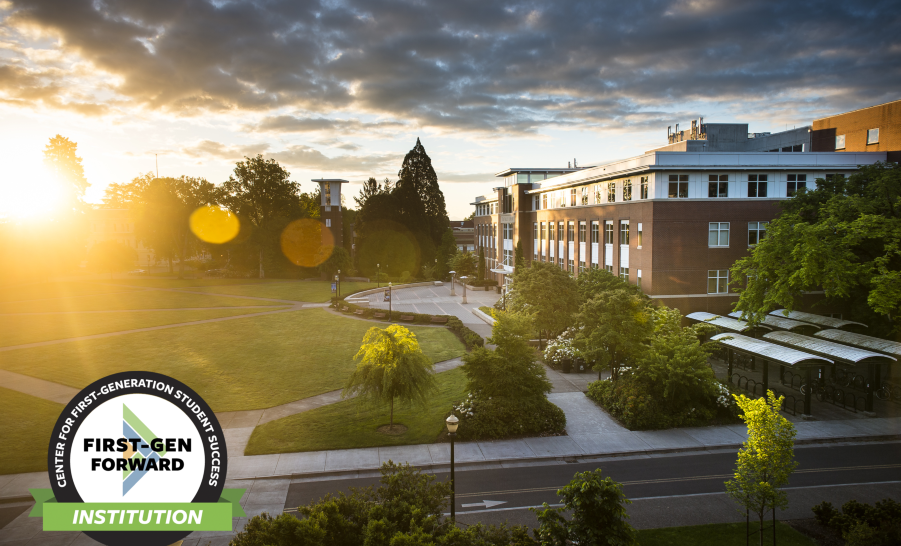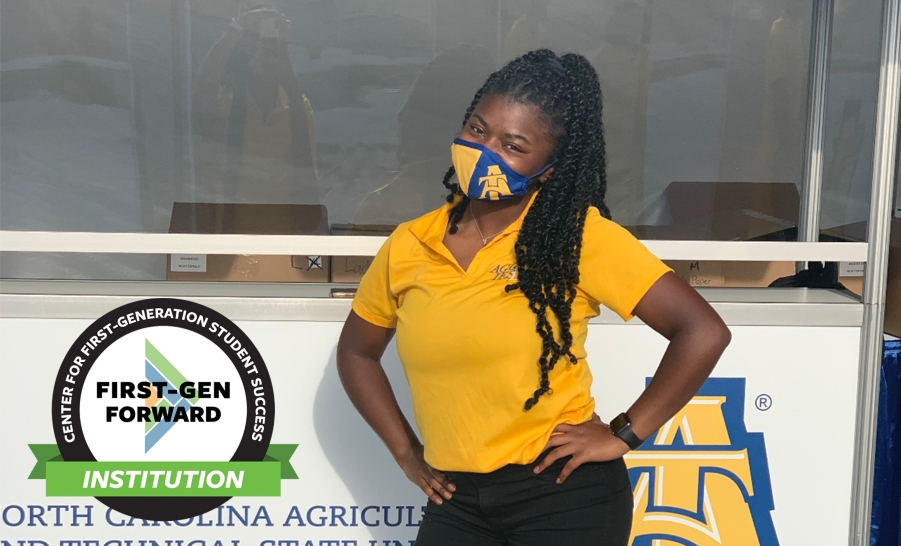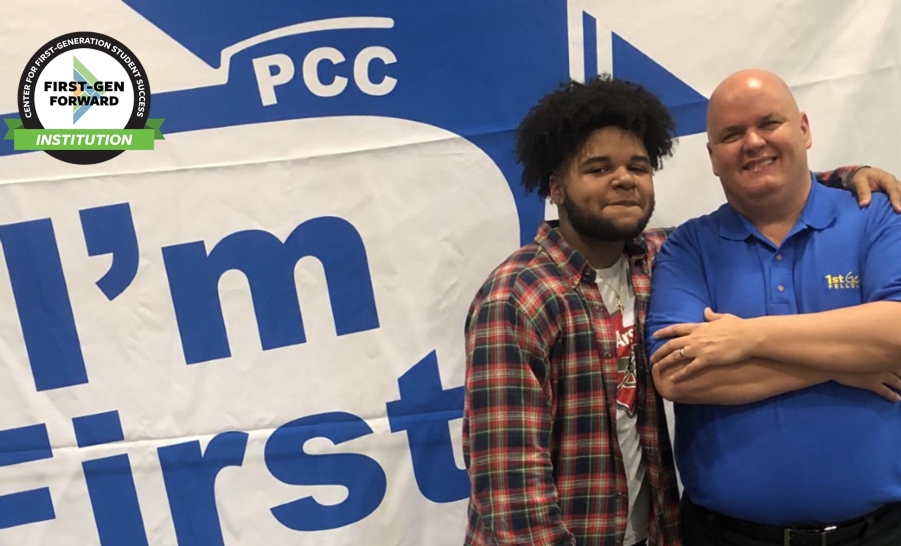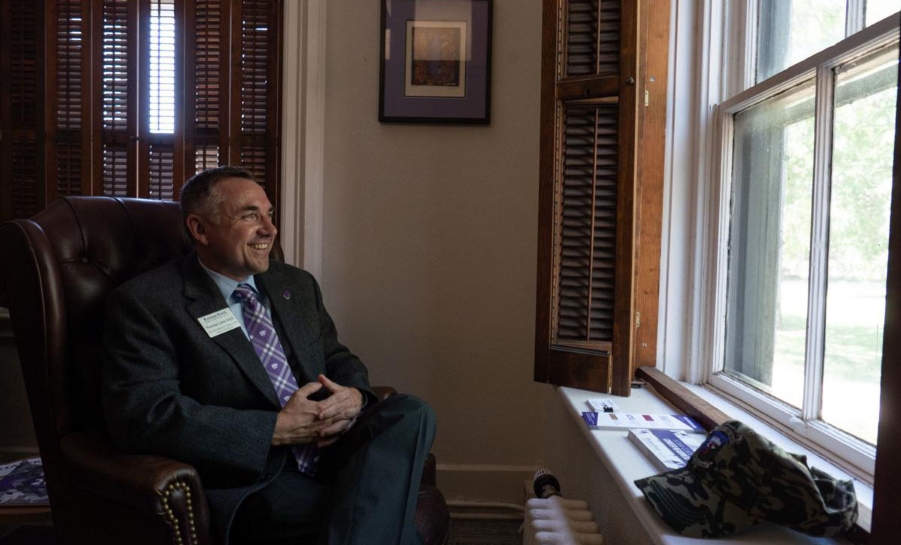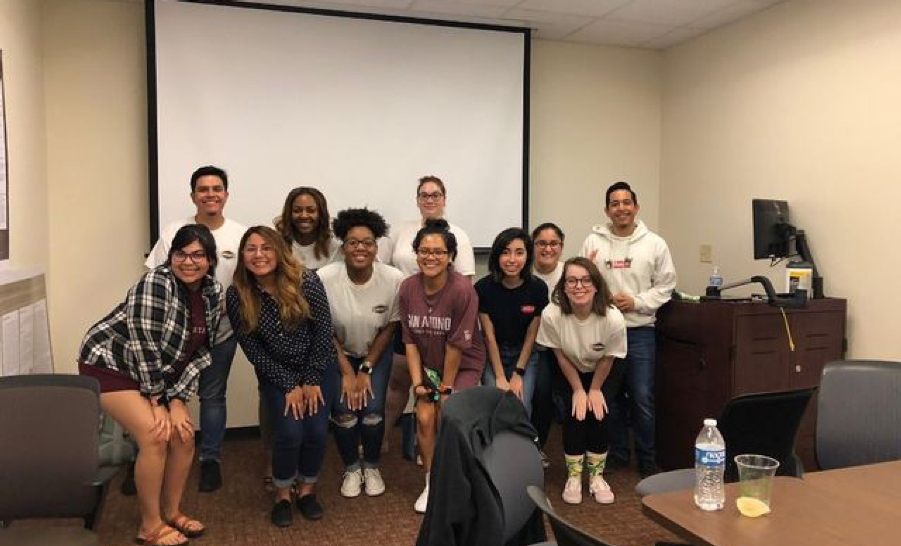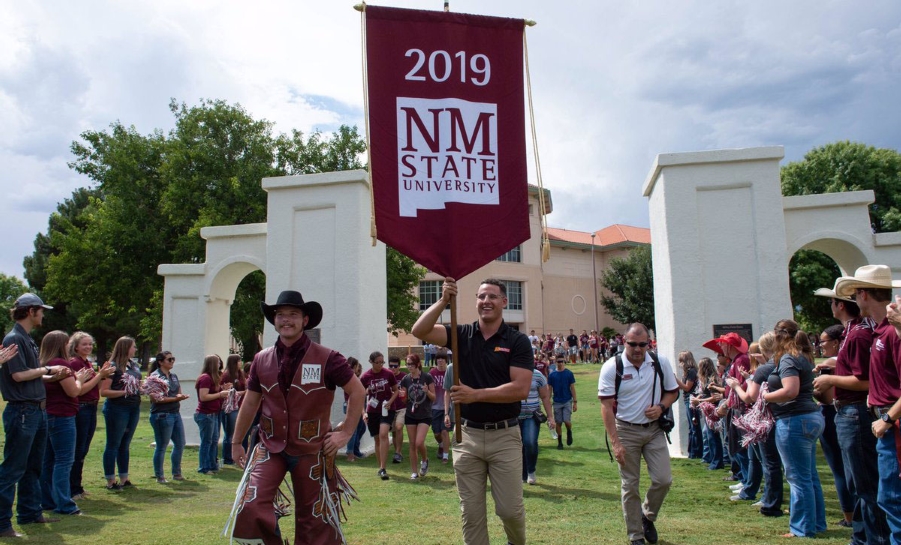Supporting First-gen Undergrad, Grad, and Professional Students
Maria Dykema Erb, M.Ed. & Selena Hernandez, Boston University / FirstGen Forward / January 12, 2022
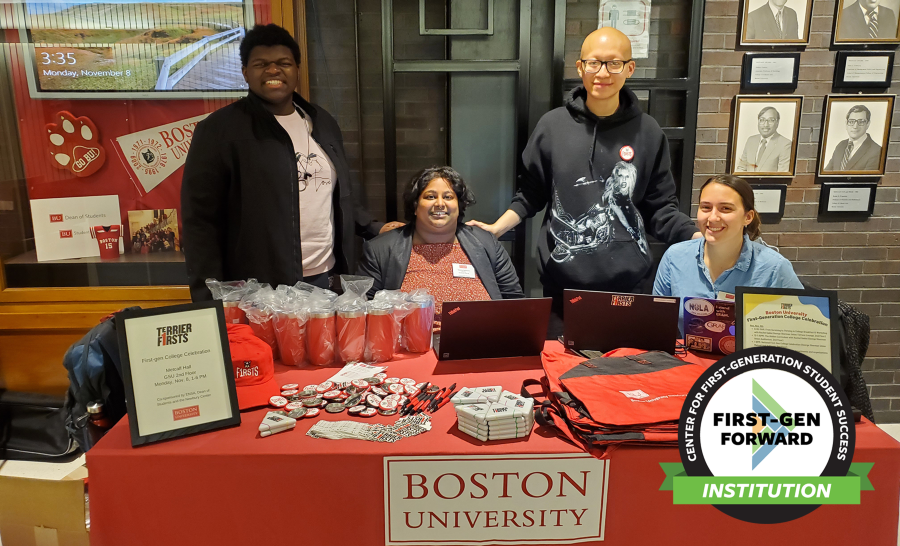
In January 2021, in the midst of the COVID-19 pandemic, the Newbury Center at Boston University (BU) opened its doors. This university-wide center celebrates and supports the holistic development of its first-generation students. While most first-gen student centers or initiatives on college campuses are focused on the undergrad student experience, the Newbury Center is committed to also supporting first-gen graduate and professional students. The Center is situated within BU Community and Inclusion, which includes Diversity and Inclusion, and has a reporting line directly to the university provost. Because of this unique reporting structure, the Newbury Center has the ability and flexibility to break down silos across campus and collaborate with all the colleges and schools to provide resources and a network of support. Originally established with two full-time positions (a director and an administrative coordinator) and student staff, we start off year two with a new assistant director. With dedicated physical space and an operating budget, the Newbury Center is able to reach out and serve the entire BU first-gen student community, a.k.a. the Terrier F1RSTS.
The Newbury Center builds community and a sense of belonging through a wide range of professional and personal development workshops that address topics like imposter syndrome, networking, setting boundaries, navigating family relationships, and financial literacy, to name a few; through signature events like the Newbury Center Orientation and the First-gen Grad Pinning Ceremony; and social gatherings like the weekly Fuel-Up Friday breakfasts, First-gen Friday game nights, and a trip to the Boston Ballet to see the Nutcracker. Some highlights of the first year of the Center include our Grand Opening, being named a 2021-2022 First-gen Forward Institution, founding the Gamma Iota Chapter of the Tri-Alpha National Honor Society for first-generation students, and sponsoring a week and a half of campus-wide events for the National First-gen College Celebration.
Raising awareness of the first-gen student identity and engaging faculty and staff is crucial to the success of the Center.
None of our work could be accomplished without the support of the entire BU campus community. Raising awareness of the first-gen student identity and engaging faculty and staff is crucial to the success of the Center. Through the Terrier F1RSTS Advocates Training program, faculty and staff who participate in a two-part series that focuses on the experiences of first-gen undergraduates and first-gen graduate/professional students, receive a Terrier F1RSTS Advocates button and a placard to post outside their office. They are then added to our Terrier F1RSTS Advocate directory on our website so students can reach out to them directly.
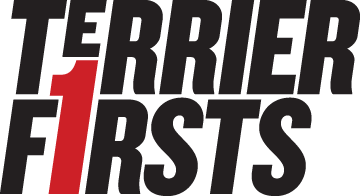
In closing, enjoy this reflection by one of our current first-gen grad students, Selena Hernandez.
The Perspective of a First-gen Latinx Higher Education Administration Graduate Student at Boston University
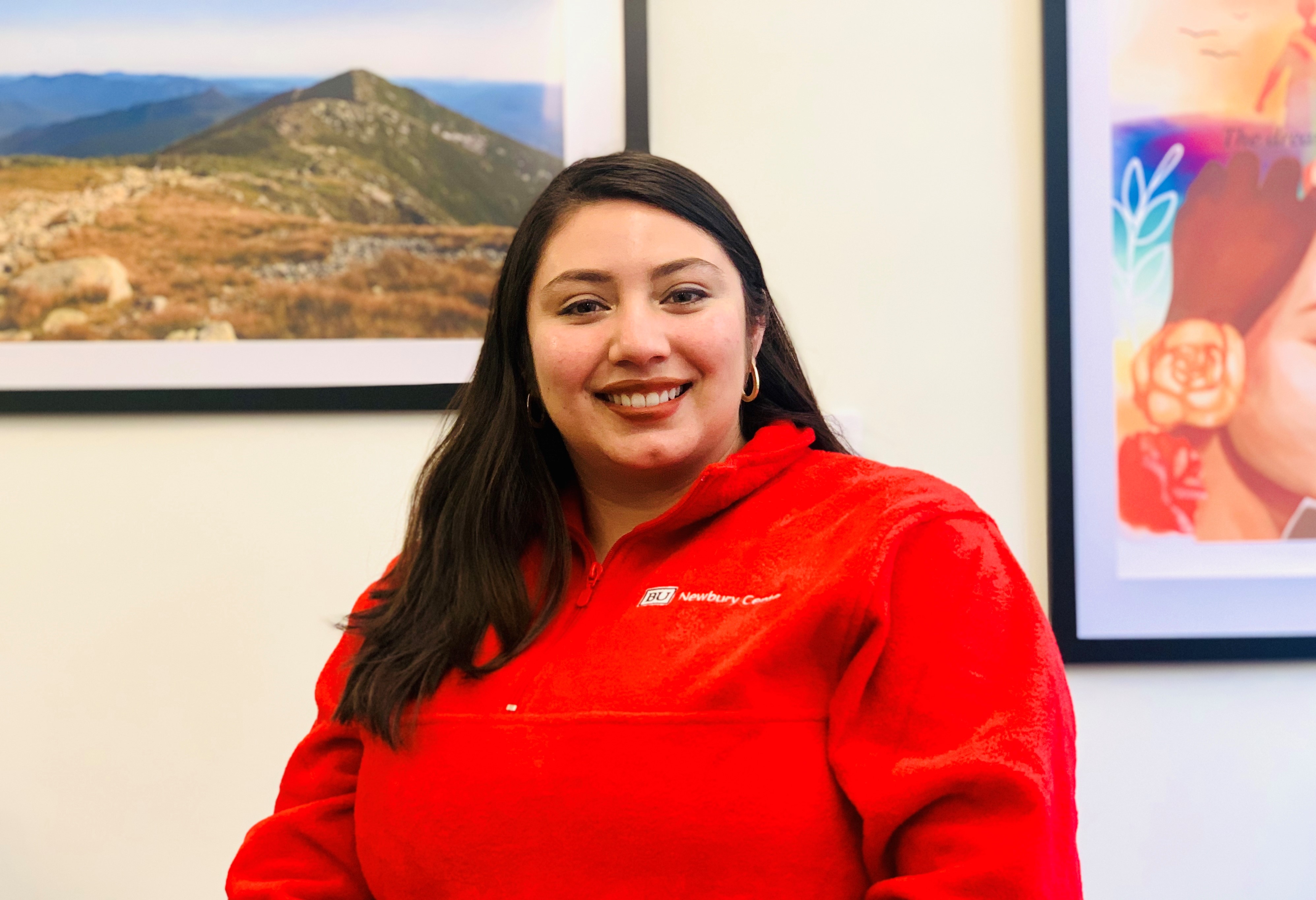
My positive first-gen undergraduate experience is what fuels my passion in pursuing a master’s in higher education administration at Boston University. We are required to do a practicum in my program, so when I saw the Newbury Center graduate assistant position advertised, I was extremely excited and instantly knew I wanted to work there. I was most ecstatic to learn that the Newbury Center also supported first-gen graduate students–students like me.
It is imperative that all of us who are committed to the success of our first-gen students work together to convey to higher education and student affairs administrators the importance of providing spaces similar to the Newbury Center.
Working in my practicum since last summer, I can not help but think about all my growth as a first-gen graduate student and higher education professional because of the support of the Newbury Center and the director, Maria Erb. In one semester, I learned to navigate graduate school and course work, co-presented with Maria to 600 first-year students about first-generation students within the U.S. and the meaning of ally-ship as a continuing-generation student, curated the Newbury Center’s Undergraduate and Graduate Professional Resource page on the website, coordinated events for prospective students, created the Terrier F1RSTS Advocate Directory, served as a panelist for faculty and staff to learn about the first-gen grad experience, participated in the monthly First-gen Forward Northeast East Regional community meetings, and more. I am most excited about co-presenting a session about the Newbury Center at the NASPA Annual Conference in Baltimore, MD.
It has been a privilege to be an integral part of the process of creating a brand new first-gen student center with everything from making the physical center space warm and welcoming, to staffing and programming, and to lessons learned with this all happening in the middle of a global pandemic. I chose to become a higher education professional at a crucial time where I will continue to ensure students know that they are not alone. I have seen the importance and impact of creating a sense of belonging for first-gen students. It is imperative that all of us who are committed to the success of our first-gen students work together to convey to higher education and student affairs administrators the importance of providing spaces similar to the Newbury Center.
For more information on Boston University’s approach, please visit their website here.
